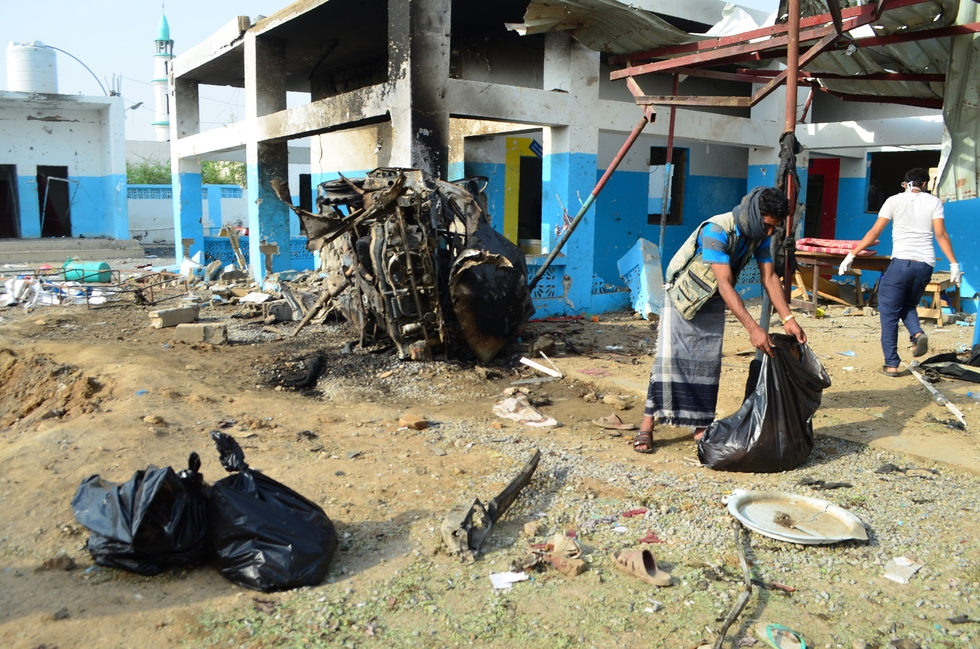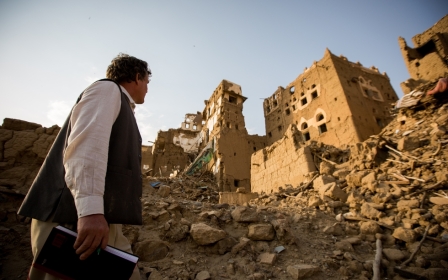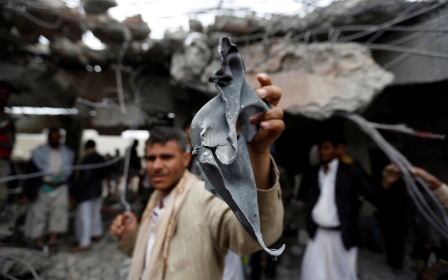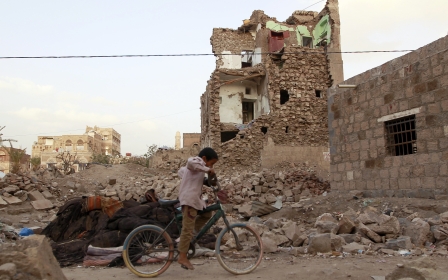Third of Saudi air strikes 'have hit Yemeni civilian sites'

More than a third of all Saudi-led coalition air strikes in Yemen have hit civilian, sites according to a report on Friday.
The Yemen Data Project report documented the use of air strikes against civilian sites such as buildings, markets, school buildings, mosques and factories.
The findings contrast with statements by the Saudi government that it does all it can to minimise civilian casualties and will add further pressure on the UK and US to suspend arms sales to Riyadh.
The latest report comes after two British parliamentary committees released reports calling on Britain to suspend arms sales to Saudi Arabia.
Saudi Arabia is the second largest customer of British weapons and has imported British arms worth around $3.7bn since the bombing of Yemen began.
According to the Guardian, Saudi Arabia disputed the Yemen Data Project figures, describing them as “vastly exaggerated”.
The Saudis also challenged the methodology used to conduct the survey, stating that a building used a school a year ago could now be used by rebel fighters.
Saudi Arabia intervened in 2015 to bolster the Yemeni government who was struggling to fight off the Iranian backed Houthi rebels who took control of the Yemeni capital of Sanaa.
Last month Middle East Eye reported on the destruction of civilian infrastructure in Sanaa following bombardment of the city from the Saudi-led coalition.
Many of the attacks seemed to have been indisriminate with at least 16 people dying after a potato crisp factory was struck by a bomb from the Saudi led coalition.
Various human rights organisations have also documented the repeated violations of human rights by the Houthi rebels.
This includes the use of landmines and indiscriminate shelling. Human Rights Watch noted this year that Yemeni civilians had “suffered serious laws-of-war violations by all sides”.
The Yemen Data Paroject found repeated targeting of civilian sites by the Saudi government despite having the coordinates to key civilian sites, including hospitals.
French NGO Doctors Without Borders (MSF) withdrew from Yemen after its health facilities were repeatedly hit by the Saudi-led coalition.
Saudi Arabia at said it "regreted" the French NGO's decision to withdraw.
The Yemen Data Project says it is comprised of academics, human rights organisations and activists, and is “independently funded to avoid any partisan affiliation”.
It chose to focus on the impact of the air campaign rather than fighting on the ground due to the difficulties of gaining access to the front line and obtaining impartial information.
Middle East Eye propose une couverture et une analyse indépendantes et incomparables du Moyen-Orient, de l’Afrique du Nord et d’autres régions du monde. Pour en savoir plus sur la reprise de ce contenu et les frais qui s’appliquent, veuillez remplir ce formulaire [en anglais]. Pour en savoir plus sur MEE, cliquez ici [en anglais].




